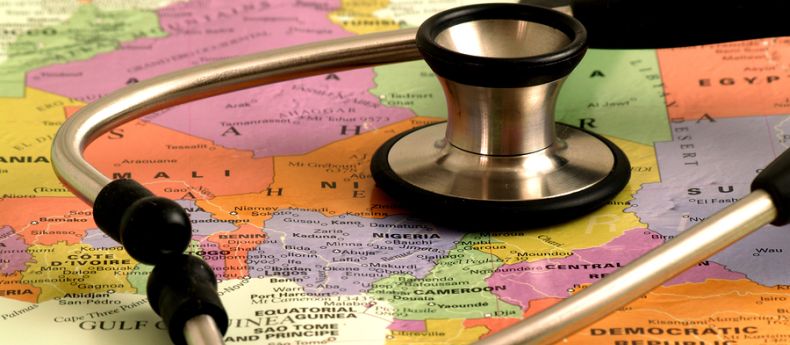
老年人出国旅游如何避免急性心血管事件
作为一名在有着国际医疗背景工作的心血管医生,在和睦家医院工作期间我收治了不少来中国或邻国旅游却发生急性心脏事件发作的患者。其中多数常见的心血管疾病包括心肌梗死、心律失常、晕厥、心力衰竭、高血压急症及肺栓塞等,这些疾病可以非常严重甚至危及生命。
心血管疾病患者在旅行期间突发心血管事件的几率呈上升趋势。研究表明,旅行中的死亡多数归因于心血管疾病(占50-70%),其次是外伤和意外(占25%),感染性疾病约占2.8-4%。老年人在国际旅行者中占据很大比例,由于生理变化和潜在疾病发生的可能性增加,使得老年旅行者的旅游相关疾病发病的危险增加。基于这些数据及临床经验,老年人在出国旅行前很有必要进行健康体检以了解一些潜在的健康问题。这里从心血管医生的角度谈几点建议:
1. 旅行前进行心血管状态和危险的评估
这是评估过程的第一步。咨询您的全科医生或心脏科医生,获得一些基本的医学信息,如血压、心率和节律,心电图和一些心脏检查以进行心血管评估(如心绞痛、心力衰竭、心肌梗死),特别是有心肺疾病的患者,应咨询医生以确定是否能耐受飞行。超声心动图检查可以帮助了解您的心脏瓣膜情况、室壁运动、心脏大小及心脏功能。如能耐受一定量的运动,可以通过运动试验以了解活动耐量并大致评估心肌缺血情况。如您有膝盖问题不能耐受运动试验,则可选择药物负荷试验或心肌核素检查以了解是否存在潜在冠心病。旅行期间携带相应检查结果,对于医生来说这些都是非常重要的信息并且可以避免重复检查。
2. 心脏药物的准备
如您患有高血压,应确保携带充足的抗高血压药物和/或其它冠心病药物,如β阻滞剂、硝酸酯类及他丁类药物。为防止药物丢失,应保存一张药物清单并包含服药间隔及剂量。在这些药物当中需要着重强调一下阿司匹林,在您出现胸痛或中风征兆的情况下阿司匹林是非常重要的。对于冠心病的患者(如曾行冠脉支架或搭桥)来说舌下含服的硝酸甘油也必须携带,以防心绞痛发作,可以带一瓶放在随身的行李箱内。另外,如旅行目的地与居住地有时差,请记住调整服药时间以保证服药次数。其它的准备还包括携带一份近期的心电图,起搏器患者要带上起搏器卡。如在机上有特殊需要请提前联系航空公司,例如饮食、医用氧气、轮椅等,考虑特殊坐位需求如靠前或靠近洗手间的坐位。
3. 飞行期间注意事项
旅行中飞机内的医疗事件是很常见的。对健康人群来说通常能够很容易适应飞机升至7800英尺的高度,但有心肺疾病的人对高度的变化很敏感。有慢性阻塞性肺病、间质性肺病或肺高压的人出现症状性低氧血症的危险相对较高。临床上,患者会出现休息状态下的呼吸困难、咳嗽、虚弱或困倦、焦虑或不安、紫绀、心动过速、呼吸急促或啰音。其它疾病也可能因高度增加而加重,包括先天性和瓣膜性心脏病、症状性冠心病、失代偿性心衰。空中旅行与每个人的躯体及心理应激状态有关,高度的变化及其带来的机舱内压的变化尤其会影响易感乘客。如果患者的加拿大心血管分级为III-IV心绞痛、或有低氧血症,应考虑使用机内医用氧气。在机场内安排轮椅或电动车,确保足够时间转机。飞行中穿着抗血栓袜、充分补水并间断性的起身活动锻炼。抗焦虑药物等也是防止一些心肺疾病发生的预防措施。
4. 旅行中的注意事项
当选择旅游目的地时,要考虑当地天气、地理条件及舒适度等因素。根据自身条件进行旅行计划较为妥当,老年人最好选择到有河流而非山脉的地方观光。我曾有一位患者在登长城时发作心肌梗死,对于施救人员来说转运病人是极大挑战并且会延误治疗。最好安排慢节奏的行程,不要急着赶路,也不要勉强自己爬山、徒步、提重物。旅行期间避免脱水,如出汗很多可适当饮用运动饮料,保证充足的循环血容量及电解质补充。如去寒冷地区或在冬季旅行请注意保暖,因寒冷会导致血压升高或动脉痉挛从而诱发心绞痛或心梗,酷热的天气易导致额外水分丢失而使血液粘稠,激活血小板而形成血栓。因此不建议老年人在寒冬和盛夏旅游,春天和秋天是最理想的季节。
5. 旅行接近尾声时的注意事项
经过1-2周让人兴奋不已的的旅行,您也许会感觉劳累或疲乏。当您回归放松状态时,一些不适的感觉会在此时出现。保持情绪稳定、充足的水分补充、足够的睡眠,清淡饮食,避免过度饮酒、咖啡、浓茶、可口可乐,这对于预防一些急性心血管事件如心动过速发作是非常重要的。另外,请记住登机前穿上抗血栓袜子以预防深静脉血栓。
中国地大物博,有很多美丽的山川秀景和历史遗迹,一生中值得您来一次以了解神秘的中国文化。和睦家医疗能够为您提供满意的医疗服务,一旦出现健康问题请随时与最近城市的和睦家医院及诊所联系。
Copyright United Family Healthcare 2014 All right reserved - 京卫网审[2014]第1927号 - 京ICP备13017554号-4



